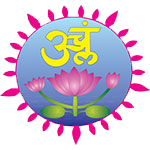
Analysing the mind
The term "mind" in Indian spirituality is often denoted as "Manas" or "Chitta." This understanding transcends the conventional psychological or cognitive concept, offering a broader and more profound perspective. The mind is a complex and dynamic facet of the inner instrument, influencing consciousness, perception, and the journey towards spiritual realization.
In all the Indian spiritual traditions, the mind is recognized as one of the inner instruments (Antahkarana), playing a pivotal role in an individual's quest for self-realization and spiritual growth.
Antahkarana (inner Instrument):
The mind is a component of the Antahkarana, which comprises the mind (Manas), intellect (Buddhi), ego (Ahamkara), and memory (Chitta). Together, these form the inner faculties that shape perception, understanding, and decision-making.
Chitta (Memories):
Chitta a part of the Antahkarana, serves as the repository of memories and impressions. It stores past experiences, emotions, and imprints that mould an individual's responses and actions. These Samskaras influence current thoughts, behaviour and predispositions.
Manas (Thinking Faculty):
Manas is the thinking aspect of the mind responsible for thoughts and mental activities. It is the part of the mind engaged in processing information and generating ideas. The mind is synonymous with the flow of thoughts, and its nature is determined by the nature of thoughts. Thoughts naturally flow outward through the sense organs, likened to a charioteer with the sense organs as five horses pulling the chariot. The nature of the mind, like a river identified by its water quality, refers to the nature of thoughts. As the saying goes, "as the thoughts, so the mind; as the mind, so the man."
Thoughts possess three distinct characteristics:
- Quality:
This depends on the type of objects. Practices like Sankhya kriya, Bhakti, reading, an interest in music, and good company contribute to improving the quality of thoughts. - Quantity:
The rate of thought flow is linked to the quantity of desires in an individual. Focusing the mind on a specific subject or action reduces the flow. Meditation steps, including chanting the dhyana mantra, can significantly reduce thoughts, allowing the mind to focus on the experience. - Direction of flow:
By contemplating that 'I' am not the body, nor mind, nor intellect, but 'I' am the pure consciousness changes the direction of thought flow. Dedicated practice of Amansaka and Paripoorna bhava changes the pattern of 'observing' the 'objects' to 'observing the 'observer which ultimately to spiritual enlightenment. At this stage, individuals can discriminate between Nithya (eternal) and Anithya (non-eternal).

